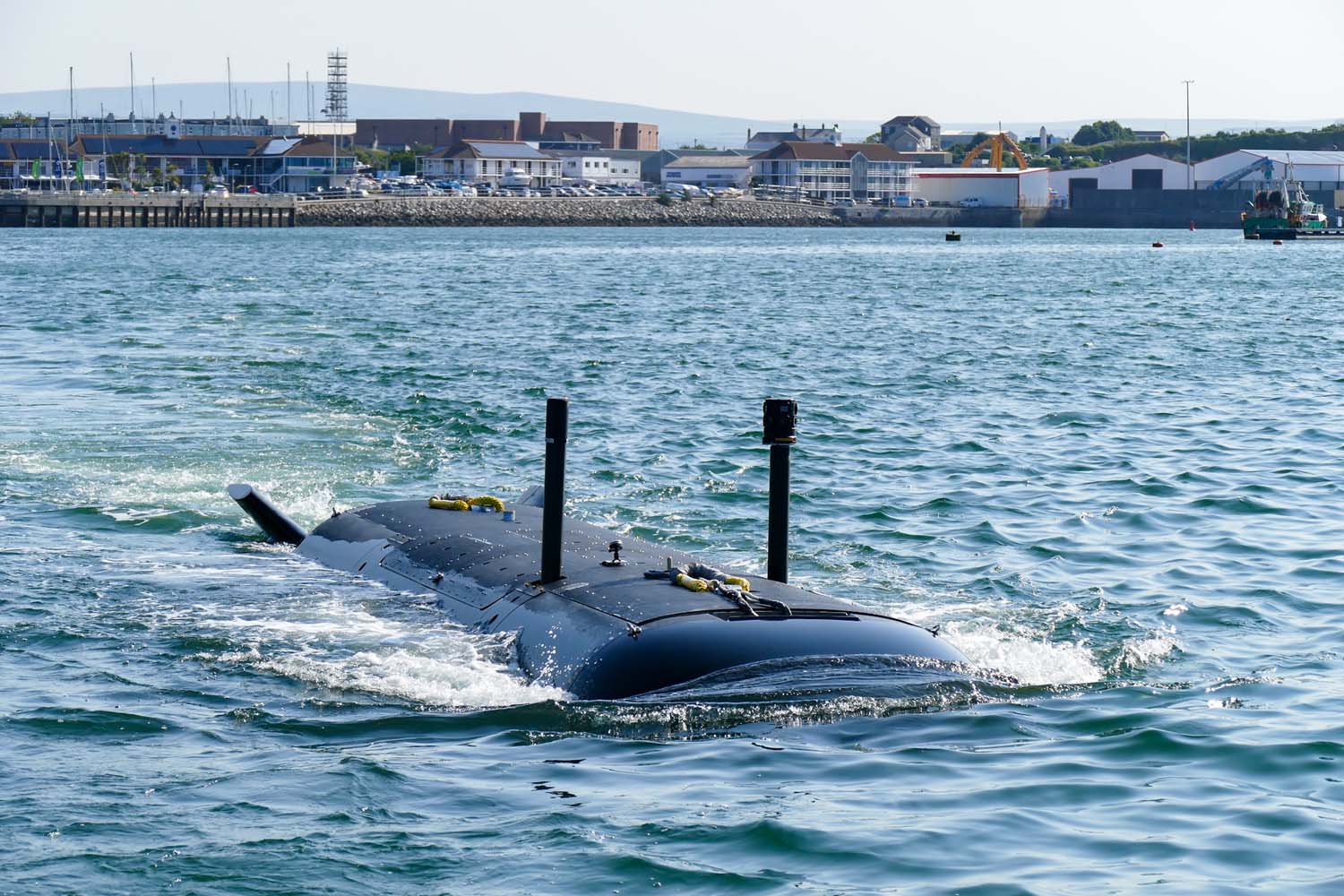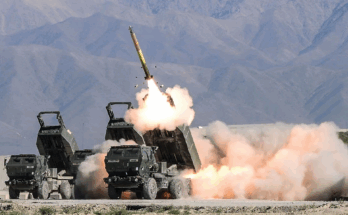
The U.K.’s successful testing of quantum atomic clocks aboard submarines provides validation for further research in quantum integration in underwater environments. These trials are not only advancing GPS-independent navigation but also validating the stability of quantum systems in submarine conditions. This progress will likely influence the development of quantum magnetometers in the near future. As part of the AUKUS alliance, the U.K., U.S., and Australia are well-positioned to build on these findings, with quantum sensing likely to become a defining capability in next-generation maritime defense.
Background
On October 28, 2025, the Royal Navy announced the successful trial of Infleqtion’s Tiqker quantum optical atomic clock on the uncrewed submarine testbed XV Excalibur. The tested device provides precise time measurements, which navigation systems use to determine current locations. Conducted in partnership with the Submarine Delivery Agency’s Autonomy Unit and MSubs, the test demonstrated the clock’s potential to enhance navigation without relying on external GPS signals, enabling underwater vehicles to remain submerged and undetected for extended periods.

Quantum technology operates through the manipulation of subatomic particles in states such as entanglement and superposition, which require highly stable conditions to function accurately. The success of the Tiqker trial is notable because it showed that quantum sensors can perform reliably even in high-pressure underwater environments, despite the sensitivity of quantum particles to external disturbances. This success demonstrates that quantum systems can be adapted for real-world defense applications, particularly in domains where traditional technologies face limitations.
Quantum Sensing in Submarine Warfare
Quantum sensing is a branch of quantum technology that measures physical properties with increased precision by exploiting quantum phenomena such as entanglement, superposition, and coherence, effects that have no parallel in classical physics. By harnessing these principles, quantum sensors can detect minute anomalies in their surroundings, offering defense systems a level of sensitivity and accuracy beyond that of conventional methods.
While the U.K. has focused on enhancing navigation in its unmanned underwater vehicles (UUVs) through atomic clock improvements, the Tiqker trial successes suggest broader potential, particularly in the development of quantum magnetometers. These devices can detect subtle changes in Earth’s magnetic field, which may improve the reliability of tracking targets in underwater environments. Given that nuclear submarines cause magnetic distortions, quantum magnetometers could increase detection accuracy by identifying these anomalies more effectively.
However, researchers continue to debate the practical value of quantum magnetometers in submarine tracking. Although the technology shows promise in measuring magnetic distortions, 2025 research highlights limitations in signal processing, specifically, the difficulty in distinguishing between magnetic changes caused by a target and those resulting from natural environmental factors. This challenge has led some experts to question whether quantum magnetometers offer noticeable improvement over existing tracking methods, despite their theoretical advantages.
Joint Defense Innovation Through AUKUS
In September 2021, the U.K., U.S., and Australia announced the formation of AUKUS, a trilateral security partnership aimed at promoting stability in the Indo-Pacific region. The initiative is structured around two key pillars. Pillar One focuses on equipping Australia with nuclear-powered submarines, with plans for the U.K. and U.S. to rotate nuclear-powered submarines through Australia to accelerate the development of its naval capabilities. Pillar Two centers on collaborative efforts to advance defense technologies, including undersea capabilities, quantum technologies, autonomous systems, and enhanced information sharing among the three nations.
Quantum Efforts in U.S. and Australian Defense
In August 2025, the U.S. Defense Advanced Research Projects Agency (DARPA) released a statement regarding the launch of Phase One of its Robust Quantum Sensors program, aiming to make quantum sensing reliable across all operational domains, including maritime environments. The first phase will focus on developing compact, deployable quantum sensors and testing them in challenging environments to ensure reliability across diverse platforms. Phase One will also focus on exploring how these sensors could be integrated into various military systems, from submarines and ground vehicles to satellites. To address challenges such as sensitivity to vibrations and environmental interference, DARPA is pursuing a redesign of sensor development.
Following the U.K.’s announcement of its successful quantum clock trial, the Australian Ministry of Defense revealed in November 2025 that it had conducted its own quantum clock tests in Washington, D.C., focused on improving communication networks and navigation in contested zones. As part of AUKUS Pillar Two, this initiative reflects Australia’s commitment to joint research and technology sharing to enhance defense capabilities.
* * *
The Royal Navy’s successful testing of a quantum atomic clock represents more than improving navigational methods; it demonstrates that quantum systems can operate reliably under the intense water pressure and isolation of submarine environments. While some researchers remain skeptical about their operational value in maritime warfare, the proven feasibility of these systems provides a strong rationale for pursuing further research. Critical to understand is the broader applications of quantum magnetometers, particularly where precise tracking can support operational decisions. Although these sensors cannot be integrated into weapons themselves, the data they provide could indirectly improve the effectiveness of existing systems. Therefore, AUKUS members will likely pursue these research efforts in an attempt to enhance adversary detection in increasingly complex maritime environments. This technological advancement could prove decisive on the battlefield of tomorrow.
Lauren Estrada has a background in global and cyber intelligence, with a strong interest in communicating technical threats to non-technical audiences. She currently works as an Editor & Analyst with Forecast International and Military Periscope, where she contributes to research and analysis on defense technologies. Her previous experience includes defense technology research, regional risk assessments, client-facing intelligence reports, trend analysis, threat of actor behavior, and cyber-focused research.
While pursuing her B.S. in Global Security and Intelligence Studies at Embry-Riddle Aeronautical University Prescott, Lauren co-led a cross-disciplinary initiative to introduce cybersecurity fundamentals to students across all majors. Her team designed and proposed a course that bridged cybersecurity and non-technical disciplines, fostering inclusive engagement with cyber skills. This work led to speaking engagements at university industry board meetings and the 2025 National Conference on Undergraduate Research in Pittsburgh, PA.



